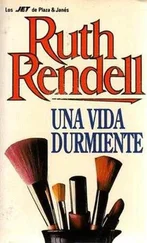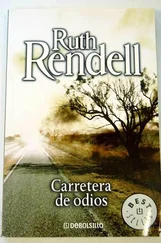Grainger’s correspondence still awaited him and, thanks to his idleness of the morning, it looked as if he might have to stay late to get it all done. During the winter, when dusk had come by five, he liked to leave the office promptly at that hour. The streets were crowded then and he could get home, safe and observed, before dark. But he comforted himself with the thought that the streets would be crowded till all hours tonight. Already he could see flashes of gold and scarlet and white fire shooting into the pale and still sunlit sky.
But from a perverse wish to see the evening’s festivities spoiled, he hoped for rain and went outside several times to study the thermometer. There had been a few clouds overhead at lunchtime. Since then the clouds had shrunk and shivered away as if chilled out of existence by the increasing cold, for the red column of liquid in the thermometer had fallen steadily from 37 to 36 to 35 until now, at five-thirty, it stood at 29 degrees.
The sun had scarcely gone when stars appeared in the blue sky, as hard and clear as a sheet of lapis. And the stars remained, bright and eternal, while those false meteors shot and burst into ephemeral galaxies. Arthur pulled down the blind so that he could no longer see them, though he could hear the voices and the laughter of those who were arriving for the bonfire and the feast.
At ten past six he completed his last letter and typed the address. Then, leaving his replies in the Out tray for Barry to post in the morning, he put on his overcoat, gave yet another tug to his tie, and left the office. He locked the gates. The Guy Fawkes celebrants were making what Arthur thought of as a most unseemly din. He came out into Magdalen Hill and approached the wire netting fence.
A small crowd of home-going commuters were already gathered there. Arthur meant to walk past, but curiosity mixed with distaste and some undefined hope of disaster, impelled him to join them.
The tables had been laid with paper cloths on which were arranged mountains of sandwiches, bread rolls, hot dogs, and bowls of soup. The steam from this soup hung on the air. There were, Arthur estimated, about a hundred people present, mostly children, but many women and perhaps half a dozen men. All were wrapped in windcheaters or thick coats with scarves. Already the grass was frosted and their boots made dark green prints on the frost. The lights in the houses behind shed a steady orange refulgence over the moving figures, the silvered grass, the ponderous mountain of wood, the whole Breughel-like scene.
One of the women brought to the stacked woodpile a box barrow filled with potatoes which she tipped out These, Arthur supposed, were to be roasted in the embers of the fire. And very nasty they would taste, he thought, as he saw a man—a black man, they all looked the same to him—tip paraffin over wood and cardboard and paper and then splash it over the guy itself. The guy, he had to admit, was a masterpiece, if you cared for that sort of thing, a huge, lifelike figure dressed in a man’s suit with a papier-mâché mask for a face and a big straw hat on its head. He was about to turn away, sated and half disgusted with the whole thing, when he saw something—or someone—that held him frozen and excited where he stood. For a man had come out of the crowd with a box of matches in his hand, a tall man with a blaze of blond hair hanging to the collar of his leather jacket, and the man was Anthony Johnson.
Arthur didn’t question what he was doing there or how he had come to be involved in this childish display. He realised only that no man can be in two places at once. If Anthony Johnson was here—from the way the children cheered, an evident master of ceremonies—he couldn’t also be at 142 Trinity Road. It looked as if he would be here for hours, and during those hours the cellar would be private and unobserved. It would be dark and very cold, solitudinous but, on this night of sporadic violent sound, sufficiently within the world to touch his fantasy with a greater than usual measure of reality.
A kind of joy that was both intense and languid filled his whole being. Until that moment he had hardly realised to the full how insistently urgent his need for the woman in the cellar was. None of his dreams, none of his frustration, had brought it home to him as the sight of Anthony Johnson, striking his first match, applying it to the timber, now did. But as he savoured his anticipation and felt it mount, he knew he must let it mount to its zenith. He had time, a lot of time. The culmination and the release would be all the greater for being sensuously deferred.
He stood there, trembling again but now with ecstasy. And he had no fear of the dark or its temptations. Happiness, contentment, was in watching Anthony Johnson apply match after match to that stack of wood until the flames began to leap, to crackle and to roar through the pyramid. As the fire became established, a sheet of it licking the feet of the guy, the first fireworks went off. A rocket rose in a scream of sparks, and along the fence, under the supervision of the black man, a child ignited the first in a long row of Catherine wheels. One after another they rotated in red and yellow flames. And those paler, stronger flames climbed across the guy’s legs, shooting long tongues across the black suit in which it was clothed, until they leapt to its face and head, spitting through its eye sockets, catching the straw hat and roaring through its crown.
The hat toppled off. The suit burned and fell away. There was a grotesque indecency in the way white limbs, long and smooth and glossy, lashed from under the burning material until the fire caught them and began to consume them also. Arthur came closer to the wire. His hands gripped the rusty cold wire. The mask was now a glowing mass that flew suddenly from the face and rose like a firework itself before eddying in sparks to the ground. A child screamed and its mother pulled it clear.
The flames teased the naked face. It wasn’t a man’s face but a woman’s, pale, blank, even beautiful in its utter dead calm expressionlessness. It seemed to move and come closer to Arthur until he could see nothing, no people, no cascading colour, no smoke, nothing but that familiar and beloved face. Then it was still and calm no longer. It arched back as if in parody of those burned at the stake. The great rent under its chin opened, gaped wide like a razor-made slash, and the fire took it, bursting with a hiss through the tear and roasting with a kind of lust the twisted face.
His white lady, his Auntie Gracie, his guardian angel …
11
————
The house at 142 Trinity Road was unlit, every street-overlooking window a glaze of blackness between dim drifts of curtain. The curtains on the top floor shimmered whitely like the lacy ball gowns of women who wait in vain to be asked to dance. Inside the house there was total, breathless silence. Arthur, leaning against the banisters, his hot forehead against cold smooth wood, thought he had never known it so silent—no tap of heels, no soft giggles, mutter of words, whistle of kettles, trickle of water, throb of heaters, thud of door, heartbeat of life. It was as if it had retreated into sleep, but the sleep of an animal which is awakened at once by the smallest sound or movement. He could awaken the house by going upstairs and setting in motion all the processes of a routine evening. He could switch lights on, fill his kettle, turn on the television, turn down his bed, close the bedroom window—and look down into that court, at last unlighted, but dispossessed for ever of its lure.
Rage seized him. He put on the hall light and took a few steps towards the door of Room 2. To destroy property was foreign to his nature, property was what he respected, but now if he could get into that room, he would, he thought, destroy Anthony Johnson’s books. One after another he pulled open the drawers in Stanley Caspian’s desk. Stanley had been known to leave duplicate keys lying about there, but they were empty now of everything except screwed-up pieces of paper and bits of string. Yet he must have revenge, for he had no doubt that Anthony Johnson had performed an act of revenge against him. All these weeks Anthony Johnson had been harbouring against him a grudge—hadn’t everything in his behaviour shown it?—because he had opened that letter from the council. Now it was his turn, he who had done his best to make amends. Now some act must be performed of like magnitude. But what?
Читать дальше











